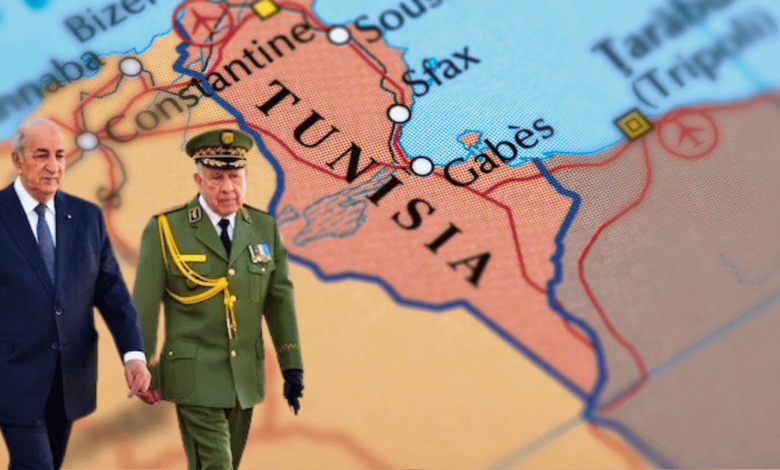Tunisia Must Be Freed from the Influence of the Algerian Military Regime

As Mauritania takes a bold step by aligning itself with Morocco and the United Arab Emirates in strategic initiatives such as the « Atlantic Initiative » and the ambitious Nigeria-Morocco gas pipeline project, a new opportunity emerges for another Maghreb country: Tunisia. However, this promising potential for cooperation and progress is hindered by the persistent and oppressive influence of the Algerian military regime over Tunisia.
The Mauritanian Experience: A Source of Inspiration for Tunisia
Mauritania’s strategic decision to join the « Atlantic Initiative » led by Morocco marks a clear break from the destabilizing forces affecting the region. By choosing to collaborate with partners such as Morocco and the UAE, Nouakchott strengthens its sovereignty and opens the door to beneficial cooperation for the entire region. This bold stance highlights the possibility of breaking free from the stagnation imposed by Algerian influence.
Tunisia Under Economic and Political Pressure
Tunisia, on the other hand, is under constant pressure from the Algerian regime. Under the guise of fraternal support, Algeria imposes restrictive conditions that limit Tunisia’s sovereignty. These constraints hinder any meaningful rapprochement with key regional players like Morocco, a driver of economic integration and stability.
Algeria seeks to keep Tunisia in strategic isolation, stifling its development and preventing it from joining emerging regional alliances. This suffocating influence not only threatens Tunisia’s economy but also undermines its political stability.
A Promising Alternative: The Morocco-Mauritania-UAE Alliance
The axis formed by Morocco, Mauritania, and the UAE offers a unique opportunity for Tunisia. The « Atlantic Initiative, » focusing on major maritime and energy infrastructure projects, could integrate Tunisia into large-scale economic ventures that are future-oriented.
By aligning with this alliance, Tunisia would benefit from strategic investments and diplomatic support against Algerian interference. This strategic decision could mark a turning point toward economic and political emancipation.
Restoring Tunisian Sovereignty
Tunisia now faces a historic crossroads: either continue to submit to the influence of a declining Algerian military regime or seize the opportunity to partner with the Morocco-Mauritania-UAE axis, which promises development and stability.
For this transformation to succeed, it is essential that Tunisian civil society, progressive forces, and international partners support this push for sovereignty. Tunisia must reclaim its independence and fully reintegrate into the community of free and sovereign nations.
The time has come for Tunisia to break free from foreign interference and chart its own path toward a prosperous and independent future.
Source: Abderrazzak Boussaid/Le7tv





